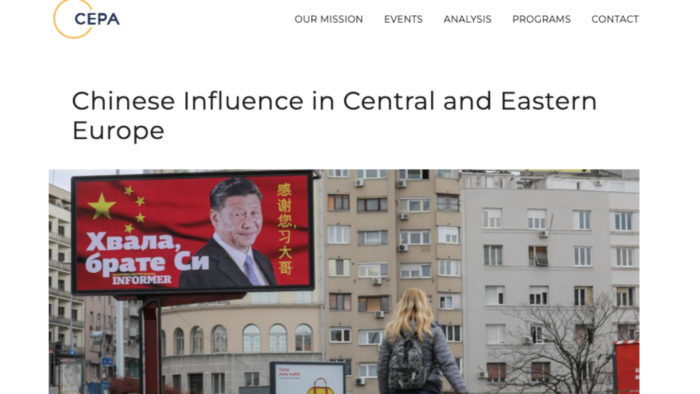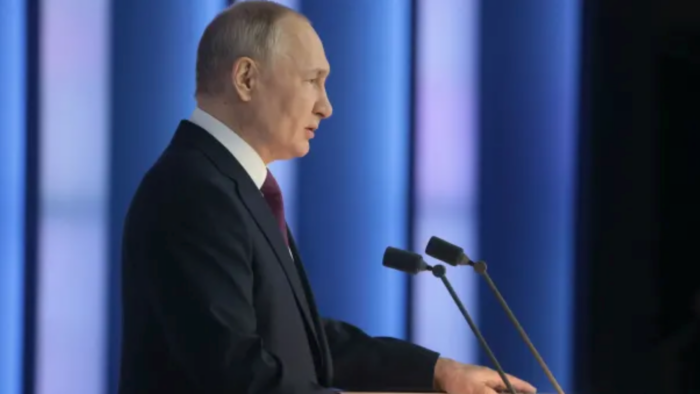A pro-Russian candidate was defeated but managed to score almost 20% of the vote in the recently concluded Presidential elections in Montenegro. The Democratic Front (DF) is a right-wing populist and socially conservative political alliance in Montenegro. It comprises several parties that share a pro-Russian and anti-NATO stance and a strong opposition to the long-ruling Democratic Party of Socialists (DPS) led by Milo Đukanović. The DF was founded in 2012 as a catch-all alliance of various political forces, but it shifted to the right after the departure of its former leader Miodrag Lekić in 2015. The DF has been accused of being involved in a failed coup attempt in 2016, which allegedly aimed to prevent Montenegro from joining NATO. The DF denies any wrongdoing and claims that the coup plot was fabricated by the DPS to discredit the opposition.
In 2019, The Democratic Front accused a “gay lobby” of trying to seize control of political parties and of undermining traditional values. The party called on the LGBT community to establish a political party if they desire to participate in politics, alleging that they collaborate with the secret service, non-profit organizations, and the media to undermine parties that uphold “family values” like theirs. “They carry out brutal attacks on traditional conservative political parties, our culture, identity and church and spiritual heritage,” the alliance said in a press release.
In the 2020 parliamentary election, the DF joined forces with other opposition parties to form a pre-election coalition called For the Future of Montenegro. The coalition managed to win 27 seats in the 81-member parliament, becoming the largest opposition bloc and ending the DPS’s 30-year rule. The coalition formed a new government with two other opposition alliances, led by Prime Minister Zdravko Krivokapić, a university professor and a former member of the DF.
In the 2023 presidential election, the DF nominated Andrija Mandić, one of its co-leaders and a prominent Serb nationalist, as its candidate. Mandić had visited Moscow several times, meeting with Russian officials and politicians. He openly sought Russia’s support in opposing the country’s NATO accession.
In May 2019, 13 people, including Mandic, Knezevic, two Russian military intelligence officers, and eight Serbs, were sentenced to up to 15 years in prison for staging an attempted coup. They were found guilty of plotting to commit “terrorist acts” and undermine the constitutional order of Montenegro during the parliamentary elections, intending to overthrow the pro-Western DPS-led government and prevent the country from joining NATO. In February 2021, the Montenegrin appellate court overturned the verdict against Mandić and the other defendants and ordered a retrial.
Mandić ran on a platform of defending the rights and interests of Serbs in Montenegro, who comprise about a third of the population. He also advocated for closer ties with Russia and Serbia and revising Montenegro’s NATO membership. Mandić faced two main rivals: incumbent President Milo Đukanović of the DPS, who sought his third term as head of state, and Jakov Milatović of Europe Now!, a centrist, anti-corruption and pro-European political movement founded in June 2022
The first round of the election was held on March 19, 2023. According to official results, Đukanović came first with 35% of the vote, followed by Milatović with 29% and Mandić with 19%. None of the candidates received more than 50% of the vote, which was required to win outright. A second round was held on April 2, 2023, between Đukanović and Milatović. In a surprising upset, Milatović defeated Đukanović by a landslide margin of 59% to 41%, becoming the first elected president not affiliated with the DPS since the introduction of the multi-party system in 1990. Milatović’s victory was seen as a sign of change and renewal in Montenegrin politics, as well as a rejection of Đukanović’s authoritarianism and corruption.
The DF accepted the election’s outcome and congratulated Milatović on his win. However, it also expressed disappointment with its performance and vowed to continue its struggle for a more democratic and sovereign Montenegro. The DF also pledged to support the government led by Krivokapić, who endorsed Milatović in the second round. The DF said it hoped that Milatović would respect the will of the people and work together with all political forces to overcome the challenges facing Montenegro.
The election was seen as litmus test for the influence of Russia in the region and the effectiveness of US-EU efforts to provide an alternative path forward. Key concerns included Russian meddling in the election and domestic sympathy for Russian aims, which could provide opportunities for interference. Montenegro plays a crucial role in maintaining stability in the Western Balkans and is a key factor in ensuring NATO’s full control of the Adriatic coast. The landslide victory for the centrist, pro-European candidate could help determine whether Montenegro and the Western Balkans will fall under further Russian influence or maintain a commitment to a European perspective.
References:
https://www.aljazeera.com/news/2023/4/2/montenegro-votes-for-president-in-tight-run-off
https://dfcme.me/wp-content/uploads/Studija-ruski-uticaj-ENG-online‑1.pdf
https://www.slobodnaevropa.org/a/russian-seek-a-montenegro-reversal/27547265.html
https://balkaninsight.com/2021/02/05/montenegro-appeal-court-strikes-down-coup-plot-verdicts/
https://balkaninsight.com/2019/08/15/montenegro-opposition-accuses-gay-lobby-of-subverting-politics/









COMMENTS